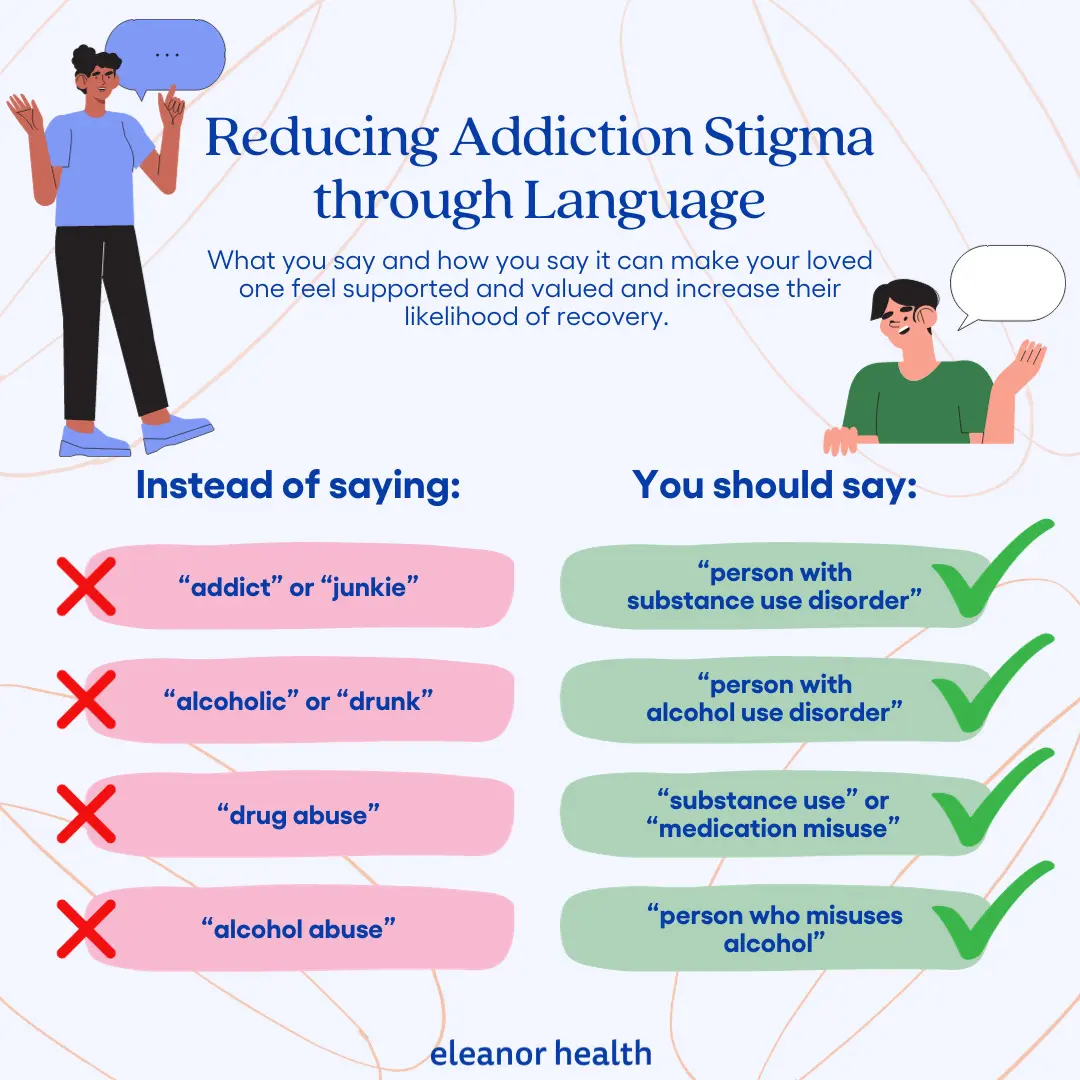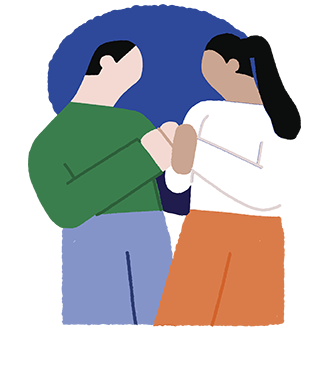The US says substance use disorders are a health crisis, but harmful stereotypes still hurt people with addiction. As a result of stigma, many people hide their substance use because they fear social rejection or criminal punishment. These feelings of guilt and shame only allow addiction to continue and for some people, it may even intensify their substance use.
Additionally, the lack of social understanding and support may cause individuals struggling with substance use to avoid seeking treatment. They may feel that getting treatment would cause their friends, family, or coworkers to judge them.
@eleanor_health How to get rid of the shame, guilt, and stigma surrounding addiction. ???♀️??? #eleanorhealth #addictionrecovery #recoveryispossible ♬ original sound – Eleanor Health
Stigma creates barriers to recovery, which only allows the cycle of addiction to carry on and worsen. Reducing stigma and shame is one of the most important steps in supporting people with addiction. To help support people struggling with substance or alcohol use and reduce addiction stigma so they can recover, there are small but meaningful actions that you can take.

Stigma will persist if we don’t openly discuss addiction and substance use. Talking about addiction as a medical condition with empathy and genuine concern for those who suffer helps to humanize it and remove negative connotations from the general public opinion.
These conversations are beneficial on multiple levels. When talking directly about substance or alcohol use with someone you want to support, opening up the conversation in a safe, nonjudgmental manner can help show them how much you care about them and want to work with them on their recovery journey. By pushing addiction out of the shadows and into compassionate conversations, more people with substance or alcohol use disorders may feel comfortable seeking treatment and starting their recovery journey. Additionally, by bringing up these conversations to others who lack education about addiction or who can increase access to evidence-based treatment, more people can receive the support they need to recover.
If you need help with your substance use disorder, we are here to help you build your confidence and momentum towards the future you want. We provide treatment services for adults with alcohol, opioid, and other substance use disorders. We are currently located in Louisiana, Massachusetts, North Carolina, New Jersey, Ohio, Texas, and Washington.
 Language Matters: Focused on Addiction
Language Matters: Focused on Addiction
 How to Help a Loved One with Trauma
How to Help a Loved One with Trauma
 E-book: How to Help a Loved One Struggling with Substance Use Disorder
E-book: How to Help a Loved One Struggling with Substance Use Disorder